-
 Art of Wellness Acupuncture & Traditional Chinese Medicine (TCM)11704 Wilshire Blvd, Suite 295, Los Angeles, CA, 90025
Art of Wellness Acupuncture & Traditional Chinese Medicine (TCM)11704 Wilshire Blvd, Suite 295, Los Angeles, CA, 90025
myartofwellness@gmail.com310-451-5522 Office Hours
MonClosedTue7:30 am --4 pmWed7:30 am --4 pmThu7:30 am -- 4 pmFri7:30 am -- 4 pmSat7:30 am -- 4 pmSunClosedOur office opens from Tuesdays to Saturdays 7:30 am to 4 pm, will be closed on Memorial day, Independent day, Labor day, Thanksgiving day, Christmas and New year.
-
Recent Posts
- Chinese New Year 2026: Year of the Horse
- Acupuncture and TCM Treatment for Perimenopause Symptoms
- How to Treat Insulin Resistance With Acupuncture and TCM
- How to Treat Metabolic Syndrome With Acupuncture and TCM
- How to Treat Syncope With Acupuncture and TCM
- How to Treat Thoracic Outlet Syndrome With Acupuncture and TCM
- How to Treat Dupuytren’s Contracture With Acupuncture and TCM
- How to Treat Nutcracker Syndrome With Acupuncture and TCM
- How to Treat Rosacea With Acupuncture and TCM
- How to Treat Perioral Dermatitis With Acupuncture and TCM
- Lymphatic Drainage With Acupuncture and TCM
- How to Treat Turf Toe With Acupuncture
- How to Treat Nerve Pain With Acupuncture and TCM
- How to Treat Watery Eyes With Acupuncture and TCM
- How to Treat Ovarian Cysts With Acupuncture and TCM
- How to Treat Dystonia With Acupuncture and TCM
- Sign up to receive news and updates and get my free report:“The Top 10 Reasons to Try Acupuncture”

December 2025 M T W T F S S 1 2 3 4 5 6 7 8 9 10 11 12 13 14 15 16 17 18 19 20 21 22 23 24 25 26 27 28 29 30 31
Stress & Anxiety
How to Treat Seasonal Affective Disorder (SAD) With Acupuncture and TCM
By Qineng Tan, L.Ac., Ph.D. & Xiaomei Cai, L.Ac., Ph.D.

Signs of depression as winter approaches? Seasonal Affective Disorder (SAD) is a form of depression, with some similarities to bi polar disorder, that recurs at a certain time of year. Sometimes called seasonal depression, or “the winter blues,” SAD symptoms typically peak during the darkest months. Acupuncture and TCM can provide relief from Seasonal Affective Disorder symptoms, including depression and anxiety, insomnia, and fatigue.
SAD is a form of mental illness that affects 5-10% of the population every year. Women are more likely to experience seasonal depression symptoms than men, and this depressive disorder is more common in young adults than other age groups. However, anyone, at any age, can experience some symptoms of seasonal affective disorder.
People who live in colder climates, farther away from the earth’s equator, are statistically much more likely to have SAD than people who live in warmer areas. It is generally believed that shorter periods of daytime sunlight are a big part of what causes seasonal affective disorder. People who work indoors, or at night, are considered to be at a higher risk for developing SAD, because they aren’t exposed to daylight.
Often, signs of SAD begin to appear in late fall, and then worsen as the days get shorter and the winter months drag on. The symptoms of depression then go away as the days get longer, and spring starts. It is possible, though, for some people to have a type of seasonal depression that comes on in the summer, or any time of year.
Mental health professionals consider SAD to be a specific type of bi polar disorder, or form clinical depression. Winter pattern SAD, or winter depression, is more common, but some people exhibit summer pattern SAD, or summer depression. A doctor will diagnose seasonal affective disorder with the same criteria they use for diagnosing major depression, when the symptoms have appeared at the same time for two or more consecutive years.
People may be more susceptible to SAD if they already suffer from other psychological disorders, like panic attacks, anxiety, PTSD, eating disorders, or ADHD, or if other people in their family also suffer from depression.
While medical science has not definitively proven what causes SAD, it is believed to be related to lower levels of serotonin and/or higher levels of melatonin. Imbalances in these brain chemicals can lead to the lethargic feelings and depressed mood that characterizes seasonal depression, which can have a dramatic impact on your ability to take part in your normal daily activities for four to five months out of the year.
Less daylight can also affect Vitamin D levels, as we normally get some of our Vitamin D from direct exposure to sunlight. The combination of the time change due to daylight savings time, and the shorter days, can have a major impact on your daily rhythms, and some people have a harder time making this adjustment.
When you are already feeling moody, anxious, or depressed, facing holiday events with your family or other people can feel overwhelming. Feelings of loneliness and sadness can make you feel isolated and unable to enjoy things that seem to be making others so happy. Changes in your appetite can lead to overeating unhealthy foods and weight gain, and you may feel triggered and self-conscious about your body.
TCM can be a highly effective way to treat all types of depression and anxiety, as it approaches mental health disorders holistically. Finding the root cause of emotional and physical symptoms from the TCM point of view can help relieve sleep problems and mood disorders, and help to restimulate mental clarity and a healthy appetite.
Top 10 SAD Symptoms

Naturally, most people feel some alteration in their mood and energy as the seasons change. Shorter days, longer nights, and colder temperatures are bound to have an effect on your mood and behavior. But, if you begin feeling persistently low, and notice that it is affecting your sleeping and eating habits, then you may need to pay closer attention to the possibility of seasonal depression. Symptoms of seasonal affective disorder include:
- Depression, depressed mood, sadness, feeling low
- Fatigue, lack of energy, low energy, tired all the time
- Sleep problems, insomnia, poor sleep, oversleeping
- Irritability, agitation, anxiety
- Changes in appetite, cravings for carbohydrates and/or sugar, or lack of appetite
- Weight gain or weight loss
- Lack of interest in activities you usually enjoy
- Difficulty concentrating, foggy headed
- Feelings of worthlessness, futility, guilt
- Dark feelings, thoughts of death, suicidal thoughts, suicidal ideation
Sometimes people show behavioral changes that are an indication of SAD. For some people, this might be an increase in repetitive motions, like pacing, hand-wringing, or general restlessness. For others, it may mean that their overall manner and mode of movement slows down and becomes sluggish. They have a hard time getting out of bed or off the couch; when they do, they may shuffle, slowly, and their posture is hunched over. People may avoid socializing and isolate themselves. They may have a low libido.
When people have winter-pattern SAD, the symptoms tend to lean towards depression, heaviness, oversleeping, overeating, and weight gain. Summer-pattern SAD may induce feelings of anxiety, agitation, lack of appetite, insomnia, irritability, and even anger and violent episodes.
Treatment for Seasonal Affective Disorder (SAD)
If you seek medical help for seasonal affective disorder, you may be prescribed antidepressant medications, such as SSRIs. SSRIs (like Prozac, Lexapro, Zoloft or Celexa) help to elevate the levels of serotonin in the brain. Bupropion (Wellbutrin) is also used to help relieve symptoms of SAD by increasing serotonin and dopamine. Benzodiazepine (Xanax), which is generally used to help anxiety, may also be prescribed to help seasonal depression.
These medications can all have some negative side effects, and people may feel dependent on them, even when their SAD might naturally be abating.
Talk therapy and cognitive behavioral therapy can help people cope with their feelings and find ways to manage their behavior so that their health doesn’t suffer during the months they are having SAD symptoms.
Light therapy is now considered a viable way to treat SAD. This involves buying and using a special lamp to simulate sunlight. This can be helpful for some people, but for others, it can cause sleeplessness, eye strain, and headaches. People who have diabetes or eye problems should probably not use a light box because it could cause damage to the retina of the eye. People who take certain kinds of anti-inflammatory medications or antibiotics can also be more sensitive to light. The light can also trigger manic episodes in people who already have bipolar disorder.
Acupuncture and TCM herbs offer a very safe way to relieve symptoms of depression and anxiety, without unwanted side effects.
Can Acupuncture Help SAD or Seasonal Depression?

In the practice of TCM, we pay close attention to the way the seasons impact our health, as our bodies and minds reflect the transformation of the world around us. Winter and Summer are times when the energy in our environment can feel the most dramatic, and the feelings these times inspire in us can go deep. Extreme heat and cold definitely have an effect on our bodies, and being surrounded by darkness or intense brightness can have a real impact on our mental outlook.
The Five Elements theory in TCM gives us a framework for understanding how temperatures, light and colors, and other aspects of seasonal changes affect and interplay with the organ systems of the body. The Liver, for example, is considered to be responsible for moving Qi through the body. If the Liver Qi is stagnant and slow, it can lead to very real feelings of frustration and ultimately, depression. The Kidney is associated with sun energy, so lack of sunlight can lead to feeling cold and sad.
It is possible to balance this energy within ourselves, so that we can experience the seasons without harm to our physical or mental health. By using specific acupuncture points, we can help to nourish and strengthen the energy in the organ systems. We can also use acupressure points and herbs to help promote better sleep, relieve fatigue, restlessness, and irritability.
Top Tips from TCM to Help Prevent Seasonal Affective Disorder

Making changes to your lifestyle is essential in order to banish the winter blues. It is easy to get trapped in a cycle of unhealthy eating and sleeping behaviors, and it may take some effort to get back on track. To avoid sluggish energy and loss of fitness, make it your goal to adopt these daily habits:
- Eat More Nourishing, Warm Foods – Many people crave sweets and starchy foods during the winter months, but the combination of eating too many carbohydrates and not getting enough exercise can lead to weight gain. This will likely add to feelings of heaviness and depression. According to the TCM philosophy of nutrition, we want to concentrate on eating more warming foods like soups and stews with lots of vegetables, including hearty, filling foods like sweet potatoes and winter squashes. Add sour flavor and probiotics with fermented foods like pickled cabbage.
- Avoid Cold Foods and Drinks – Now it is especially important to avoid cold foods like iced treats, smoothies, or raw salads. Eating too much sugar or drinking alcohol, especially in the evening, can cause blood sugar levels to rise and then fall, which can cause you to wake up in the night.
- Exercise in the Morning Light – A brisk walk around the neighborhood or a short hike in the fresh air is ideal. You want to get your heart pumping and take in as much sunlight as you can in the early part of the day.
- Get Some Sun – Take every opportunity to sit by a window. If this is not possible, keep your work and home space well lit during the daytime, so that you don’t get drowsy. Go for one more walk in the afternoon to catch the sunset, if you can.
- Adjust Your Sleep Cycle – Go to bed earlier, and wake with the sun. It is natural that we want more rest and time in our cozy, warm beds in the winter. Avoid staying up in the darkness with the unnatural light from your screens shining in your eyes before bedtime. Wind down with a warm drink and a self-care foot massage.
Acupuncture Near Me for SAD and Seasonal Depression – Los Angeles Area
Acupuncture and TCM are now widely accepted as effective treatments for mental health issues and psychological disorders of all kinds: depression, anxiety, PTSD, panic disorder. A TCM practitioner will listen carefully to all of the physical and emotional symptoms each individual presents, and structure each acupuncture treatment and herbal formula accordingly. Thus, as the seasons change, and you go through life changes, your treatment plan changes, too. To avoid Seasonal Affective Disorder, it is best to see your acupuncturist a few months before the difficult season will arrive, so that this year, you can prevent seasonal depression from coming on.
*This article is for education from the perspective of Traditional Chinese Medicine only. The education provided by this article is not approved by FDA to diagnose, prevent, treat and cure human diseases. It should not stop you from consulting with your physician for your medical conditions. Traditional Chinese Medicine is based on Qi, which is an invisible force that usually cannot be observed by modern science. Because science focuses on testing ideas about the natural world with evidence obtained through observation, these aspects of acupuncture can’t be studied by science. Therefore acupuncture and Chinese herbs are often not supported by double-blind, randomized trials, and they are considered alternative medicine therapies in the United States.
How to Treat Essential Tremor With Acupuncture and TCM
By Qineng Tan, L.Ac, Ph.D. & Xiaomei Cai, L.Ac., Ph.D.
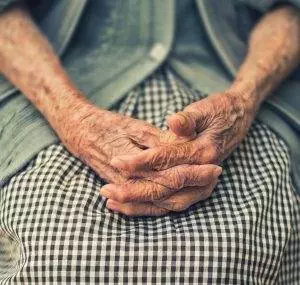
Shaking hands, body shaking for no reason, head shaking, feel wobbly when you’re walking, maybe your voice quivers when you speak? These could be signs of Essential Tremor (ET). Essential tremor is a neurological condition, often mistaken for Parkinson’s disease, which causes rhythmic shaking of parts of the body, especially the hands. Acupuncture and TCM are an effective way to treat symptoms of essential tremor.
Essential Tremor (ET), also called “kinetic tremor” or “benign essential tremor,” is a chronic nervous system disorder that causes hand tremors, trembling hands, head shaking, body tremors in the arms or legs, and can also affect the voice. The hand shaking most often happens when you try to perform some simple, yet specific task that requires coordinated movements or using tools, such as shaving, writing, or pouring liquid into a glass.
Essential tremor is the most common type of movement disorder, affecting about 4% of older adults, although it can happen at any age. The causes and progression of ET are not fully understood by medical science.
Tremors are categorized into two main types of tremors: resting or active. A resting tremor is when the body shakes even at rest. Active tremors are when there is shaking when a person is attempting to make voluntary movements. Essential tremor is a type of active tremor.
“Postural tremor” refers to an active tremor that occurs when a person is trying to maintain a position, like standing with the arms outstretched, and cannot do it without shaking. An “internal tremor” is a person’s feeling that a quivering or shaking sensation is taking place inside their body, that cannot be seen by others.
Essential tremor is often misdiagnosed as Parkinson’s disease, but, in fact, essential tremor is much more common than Parkinson’s (20 times more common). Like Parkinson’s, essential tremor causes hand shaking, but ET is different in that symptoms usually occur when you’re actively trying to do something, whereas Parkinson’s tremor occurs even when your limbs are at rest. Parkinson’s also typically involves non-motor symptoms as well as motor symptoms.
Other conditions can also cause hand tremors. Vascular parkinsonism, a neurological disorder that is the result of small strokes, causes blockage of blood flow in the brain. Both Parkinson’s and vascular parkinsonism can cause a distinct type of tremor that involves the thumb and fingers brushing together slowly, sometimes called a “pill-rolling tremor.” Asterixis is another kind of motor control disorder that causes muscles to jerk, resulting in a characteristic hand-flapping gesture, sometimes referred to as “liver flap.”
There are many other conditions that can also cause tremors, including: hyperthyroidism, multiple sclerosis (MS), stroke, liver or kidney disease, and alcohol addiction. Anxiety or panic attacks can also cause a temporary tremor or shakiness.
Essential tremor seems to run in families sometimes, but many people begin to experience tremors for no apparent reason. It is theorized that ET may be caused by something genetic, or it may be caused by neurodegeneration–the gradual degradation and death of cells in the brain.
Acupuncture, combined with other TCM modalities such as moxibustion and herbs, is a good method for reducing hand tremors and other symptoms of essential tremor, as it has been demonstrated to have positive effects on the generation of cells in the brain and nervous system, as well as reducing stress and anxiety.
Top 5 Essential Tremor Symptoms
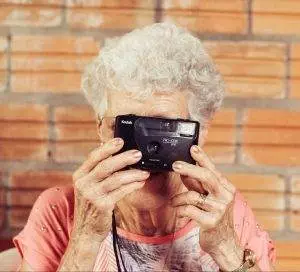
Very mild symptoms of essential tremor, such as having trouble threading a needle, often begin to show up when a person is in their 40s. Then, as time goes on, the symptoms of ET become more obvious:
- Tremor, especially in hands, that is most noticeable when you’re trying to do something
- Head nodding that you can’t control
- Shaking on one side of the body more than the other
- Voice quivers or voice is shaky when you speak
- Tremor gets worse over the years
Some medications (amphetamines, corticosteroids, or asthma medications) or stimulants like caffeine may make the tremors more noticeable. Some people find that the tremor lessens when they drink a moderate amount of wine or other alcohol. Stress, strong emotions, too much exertion, low blood sugar, or being dehydrated can make the tremor more pronounced.
Essential Tremor Treatment
There is no specific test that shows whether a person has essential tremor. Diagnosis is based on observation of symptoms, and the use of testing to rule out other disorders, such as thyroid disease or Parkinson’s.
Medications are used to treat tremors with varying levels of success. Propranolol and Atenolol are beta-blockers that can be helpful for some people with ET. Primidone or Topamax are anti-seizure (anti-epileptic) drugs that can also be prescribed to help relieve shaking. In many cases, these medications are not very helpful for relieving the tremors. Doctors may try anti-anxiety medications like Valium, Ativan, or Klonopin. Botox injections have also been tried as a medical treatment for essential tremor.
In some cases surgery to remove parts of the thalamus has helped stop severe tremors, but there is a high risk with this type of brain surgery. Nowadays, when drugs do not seem to provide relief from tremors, people may be referred for a thalamic deep brain stimulation therapy, in which electrodes send an electrical impulse to the brain to interrupt the faulty signals leading to involuntary shaking.
Acupuncture treatment is another way to stimulate brain activity, having a positive effect on neurotransmitters in the brain and reestablishing connections throughout the nervous system.
Can Acupuncture Help Essential Tremor?

According to TCM theory, the symptom of hand tremors generally originates from the liver and kidney systems. Liver blood deficiency and kidney deficiency are closely related, and can lead to rising Liver Yang, and Liver Wind. It is the pathogenic factor of wind that causes the hand shaking. We use acupuncture treatment and herbs to nourish the liver and kidney so that wind is subdued and yin and yang energies are balanced.
One study compared groups of people with ET who were treated with medication (Propranolol) versus patients treated with both acupuncture and medication. The results showed better results for the patients who received the combined therapies.
A hospital study in China showed that a combination of acupuncture treatment and herbal formulation had an over 80% efficacy rate for patients with benign essential tremor.
A recorded case study of a woman treated with acupuncture for tremor showed that she was better able to write and hold objects, and that the improvements were maintained even a year after she had completed acupuncture treatment.
Best Exercise for Hand Tremors
Regular exercise is important for everyone, especially as we age, in order to keep our physical and mental faculties strong and agile. Exercises that can be beneficial for people with essential tremor include:
- Regular cardiovascular exercise and light strength training
- Tai Qi
- Yoga
- Meditation
- Puzzles, math games, brain teasers, word searches, etc.
Acupuncture Near Me for Essential Tremor in West Los Angeles, Brentwood area
If you’ve started to notice your hands shaking, voice trembling, or that you’re feeling unsteady on your feet, don’t wait until the situation gets worse. Acupuncture treatment can help reduce the frequency and severity of hand tremors, and prevent essential tremor from progressing. The TCM doctors at Art of Wellness have over 35 years of experience treating all kinds of neurological disorders and helping people maintain their quality of life as they get older.
*This article is for education from the perspective of Traditional Chinese Medicine only. The education provided by this article is not approved by FDA to diagnose, prevent, treat and cure human diseases. It should not stop you from consulting with your physician for your medical conditions. Traditional Chinese Medicine is based on Qi, which is an invisible force that usually cannot be observed by modern science. Because science focuses on testing ideas about the natural world with evidence obtained through observation, these aspects of acupuncture can’t be studied by science. Therefore acupuncture and Chinese herbs are often not supported by double-blind, randomized trials, and they are considered alternative medicine therapies in the United States.
How to Treat Oligospermia With Acupuncture and TCM
By Xiaomei Cai, L.Ac., Ph.D. & Qineng Tan, L.Ac., Ph.D.
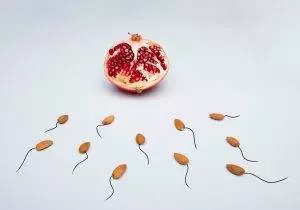
If you and your partner have been trying to get pregnant but it hasn’t happened yet, maybe you are concerned that it could be due to male infertility, or low sperm count, also known as Oligospermia. Male factor infertility is an issue in 40-50% of cases when a couple is having trouble conceiving. Acupuncture and TCM herbs offer a male infertility treatment that can help improve sperm production, increase sperm count, and help men produce healthy sperm.
Infertility in men is more common than you might think. Statistics show that infertility increasing worldwide is an issue, as many couples are having trouble conceiving. Roughly one in ten couples find that they are not able to get pregnant without some form of fertility treatment. Most men don’t know they may have this problem until they are trying to get their partner pregnant and things aren’t working. When couples go in for a female and male infertility test, about half of the time they find that male fertility is compromised. The cause of infertility in male can be due to many variables, so it may take more testing to discover why there is a problem. In many cases, infertility in men and women is never fully explained medically.
You can take a sperm count test at home, but that doesn’t tell you the whole story. A fertility test for men, or semen analysis, performed through a doctor will give you more information about sperm motility, sperm shape, the concentration of sperm in your semen, the Ph balance of the semen, and other details that may help to determine if there is a problem with male factor infertility. Other, more specific tests can show: swimming speed and direction, whether there are antisperm antibodies (ASAs) present, the sperm’s effectiveness at breaking through the outer wall of an egg, etc. Of men who are experiencing problems with infertility, about ten percent have azoospermia, which means a sperm count of zero, or no sperm in the semen. This can happen due to genetic conditions, radiation or chemotherapy treatments, use of some drugs, or anatomical abnormalities.
One of the most common causes of infertility in men is varicoceles, which are swollen veins in the testicles, similar to varicose veins. Varicoceles are not always noticeable, and often don’t cause any problems. However, they can block proper blood flow in the testicles, cause the temperature of the scrotum to rise, and have a negative impact on sperm production. This condition can be treated with surgery to repair the veins, or redirect blood flow to healthier veins.
Perhaps you have already heard about how beneficial TCM treatment can be for infertility in women, but you may not know that acupuncture for male infertility is also effective, whether used as an adjunct to ART (assisted reproductive technologies) treatment for male fertility, or as an alternative to conventional medical treatment. In the case of varicoceles, for example, studies have shown that men treated with acupuncture showed similar improvement in sperm motility and quality to men who had had minimally invasive surgery to help repair varicoceles.
Acupuncture treatment works on many levels, helping to improve blood circulation, reduce inflammation, cool excess heat, boost testosterone and erectile function, as well as helping to optimize overall health by reducing the effects of stress and anxiety, and improving sleep.
Top 10 Cause of Low Sperm Count

Problems with low sperm count and low sperm motility can be related to underlying health issues, or in some cases, lifestyle habits that may affect sperm production.
- Varicocele – swelling in the blood vessels in the testicles that has a negative impact on sperm production and sperm quality.
- Infections – some illnesses, like mumps, or sexually-transmitted diseases, like gonorrhea or HIV, can cause inflammation, damage, and/or scarring in the testicles that can affect sperm health or the mechanical release of sperm from the testicles.
- Ejaculation problems – chronic health conditions like diabetes, the use of blood pressure medications like alpha-blockers, or injury to the urinary tract or spine, can cause problems with the process of sperm being mixed with semen from the prostate and exiting the body through the penis. Retrograde ejaculation, for example, means that semen and sperm are going into the bladder instead of being expelled through the penis during ejaculation. Erectile dysfunction (ED) can also be an issue.
- Immune Infertility – autoimmune disorders can cause antibodies (antisperm antibodies, or ASA) to mistakenly attack sperm as if they were foreign bodies. This can happen in both men and women. (If a woman is producing ASAs, they attack the sperm when they enter the female reproductive system.) Some men who have had a vasectomy begin to develop these antibodies, and then, even after reversal of the vasectomy (vasovasostomy), they still have male infertility issues.
- Blocked tubes – several sets of tubes are involved in proper functioning of the male reproductive system and the male urinary system. If any of these tubes (the vas deferens, epididymis, seminal vesicle, urethra) are blocked, due to infection, inflammation, scarring, or other damage, it can affect sperm making it into the semen and out of the body during ejaculation. BPH and other prostate problems can cause inflammation in this area.
- Hormone imbalance – low testosterone levels or imbalances in levels of FSH and LH, hormones can cause low sperm production.
- Undescended testicles – a small number of male babies are born with one or both testicles that have not descended into the scrotum. In some cases, the testicles will descend within a few months on their own; in other cases, surgery is performed to correct the problem. If a boy grows into adulthood with his testes undescended, it can affect male fertility.
- Cancer or other tumors – a tumor or imbalance in hormones due to cancer (testicular cancer, prostate cancer, or bladder cancer) can disrupt sperm production. Side effects of cancer treatments like radiation, chemotherapy, and hormone therapy can also slow down sperm production or stop it. These side effects can also affect libido and sexual function.
- Chromosomal defects – several genetic disorders can cause infertility in men due to chromosomal abnormalities (Noonan’s syndrome, Cystic fibrosis, Kleinfelter syndrome)
- Celiac disease – While there has only been limited research done thus far, there have been some connections made between male infertility and celiac disease, which is a type of autoimmune disorder. One study suggested that a gluten-free diet helped men with celiac disease to increase sperm count.
Other things that can impact sperm count and sperm motility include the use of recreational drugs like marijuana, opiates, hormone supplements meant to boost testosterone, or anabolic steroids taken to build more muscle mass. Medications used to treat autoimmune disorders, like IBDs, Crohn’s disease, etc., can also affect male fertility.
How to Increase Sperm Count – Medical Treatments

Medical treatment and ART for male infertility depends first on testing to get as clear a diagnosis as possible. If it seems like some infection is causing problems, antibiotics may be prescribed, although in some cases, an extended infection may have already done some damage to the organs involved. If hormone imbalance is the problem, medications that alter the balance of FSH and LH, hormones crucial to sperm production, may be used, including estrogen receptor blockers, or human chorionic gonadotropin. As previously mentioned, surgeries to repair varicoceles can help to restore fertility.
In many cases, though, the exact cause of male infertility is not known. Male infertility is a complex health issue. The physical mechanics of sperm production, erectile function, and ejaculation are all important. It is important to acknowledge that these forces are closely connected to a man’s mental health and emotional health. If there is a lot of stress around trying to get pregnant, stress about having sex, stress in the relationship, or many other issues that may come into play, then the stress itself can have a real impact on sexual function and sperm production. Acupuncture and TCM is a good treatment method to address all of these physical and emotional issues at the same time, without unwanted side effects.
Can Acupuncture Help Male Infertility and Oligospermia?
First, let’s make it clear: acupuncture treatment for low sperm count is not going to involve needles being placed anywhere near the scrotum or penis. Acupuncture works on a subtle level and is relatively painless. Patients usually find it relaxing, and often take a nap during the treatment.

According to TCM theory, both blood and Qi need to flow smoothly throughout the channels of the body, nourishing the organs, for there to be optimal health. This is particularly true when it comes to promoting good reproductive health. Sperms must be ready to move through both the man’s reproductive system and the woman’s reproductive system, penetrate an egg, and start a new life. In order for healthy sperm to be produced, there needs to be a lot of blood and energy flowing to the testicles, where sperm are created.
In TCM, dampness and phlegm are often the causes of blockages. Acupuncture treatment focuses on improving blood flow, not only to testicles, but also to the kidneys and liver. TCM theory considers the kidney to be the keeper of a person’s “essence.” Essence is the life material that we inherit from our parents and pass on to our children. The kidneys are also considered to be responsible for the regulation and transformation of fluids in the body. Strengthening the kidneys, clearing heat, phlegm, and dampness from the organs, and nourishing the blood and Qi are the main focus of acupuncture treatment for low sperm count.
Nutrition, diet, exercise, stress reduction, adequate sleep, and other lifestyle habits are important factors in treating low sperm count. Your acupuncturist near me will go over the details in order to help you choose foods that boost fertility and adjust your routines so that they are most beneficial for infertility.
It helps to realize that sperm take about two to three months to mature, so acupuncture, herbs, and changes in lifestyle, as part of a holistic treatment regimen, need to be given adequate time and commitment to take effect.
One study confirmed that scrotal temperature and sperm count were improved in a significant number of men treated for oligospermia with acupuncture.
A study measuring sperm maturity and functionality found that patients treated with acupuncture for five weeks showed an increase in sperm function at the end of the five weeks, and then scored higher for sperm function again five weeks after treatment had ended.
Another study looked at acupuncture for low sperm motility and found that acupuncture helped increase sperm motility in a significant number of men.
Chinese herbs have been shown to have a positive effect on balancing FSH and LH levels.
Acupuncture Near Me for Oligospermia in Los Angeles
Dealing with male infertility due to low sperm count can be frustrating and stressful. It’s important that you and your partner put together a team of supportive health care providers who are also experts in the field of infertility treatment. At Art of Wellness, we have over thirty-five years of experience providing the very best in integrative care for infertility. We have worked with many of the top ART providers in Los Angeles, providing adjunctive care for couples going through fertility treatment.
*This article is for education from the perspective of Traditional Chinese Medicine only. The education provided by this article is not approved by FDA to diagnose, prevent, treat and cure human diseases. It should not stop you from consulting with your physician for your medical conditions. Traditional Chinese Medicine is based on Qi, which is an invisible force that usually cannot be observed by modern science. Because science focuses on testing ideas about the natural world with evidence obtained through observation, these aspects of acupuncture can’t be studied by science. Therefore acupuncture and Chinese herbs are often not supported by double-blind, randomized trials, and they are considered alternative medicine therapies in the United States.
How to Treat Meniere’s Disease With Acupuncture and TCM
By Qineng Tan, L.Ac., Ph.D. & Xiaomei Cai, L.Ac., Ph.D.
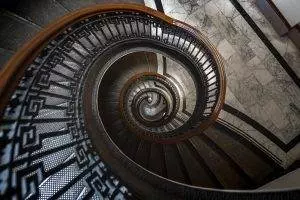
My ear feels clogged sometimes, I get sudden dizzy spells, and sometimes I think I’m losing hearing in one ear! These symptoms could be signs of Meniere’s disease, a condition of the inner ear that causes ringing in the ears or buzzing sounds, sudden hearing loss, and vertigo–that spinning sensation sometimes accompanied by nausea. Acupuncture is an effective vertigo treatment and can help resolve the dizziness and hearing problems associated with Meniere’s.
A lot of people may not realize that they have Meniere’s disease, because the most common symptoms can also be indicators of many other health issues. For example, sudden attacks of vertigo can be caused by a condition called benign paroxysmal postural vertigo, or BPPV. BPPV is another kind of inner ear problem, caused by the movement of small crystals of calcium carbonate into a part of the ear canal where they do not belong. Vestibular migraine and other types of migraine headaches can cause feelings of vertigo and ringing in the ears. Ringing in the ears, also known as tinnitus, can also be a symptom of a sinus or ear infection, thyroid problems, cardiovascular problems, or caused by repeated exposure to excessive noise levels.
Meniere’s disease is a chronic condition that can begin at any time during life, but it is most commonly diagnosed when a person is in their 40s or 50s. Most of the time, Meniere’s symptoms only affect one ear. A “Meniere’s attack” can come on in a way that is similar to a migraine. First there may be subtle signs that it is starting, like changes in hearing, or a feeling of fullness or congestion in one ear. Then, a sudden and strong attack of vertigo can make you feel so dizzy, light-headed, and off balance that you have to lie down. You may even feel nauseated to the point of vomiting. These episodes of intense dizziness can last anywhere from several minutes to several hours, or even a whole day. Afterwards, you may feel exhausted and need to rest. Never knowing when you might have one of these attacks of severe vertigo can be very disruptive and unsettling, really having a negative impact on your life.
Each person’s experience of Meniere’s disease is different, and there is no clear cause for the disorder. Over time, some people may have fewer and fewer symptomatic episodes, while other people may have them more frequently and may begin to develop more serious hearing problems. Hearing loss associated with Meniere’s disease may seem to come and go at first, but it can progress to the point of permanent hearing loss, or deafness.
What causes Meniere’s disease? Medical science is unclear as to why some people develop this inner ear problem, but it is generally believed to be related to excess fluid in the ear. Meniere’s symptoms might develop after some type of head injury or ear infection, respiratory infection, or viral infection. Meniere’s may be related in some cases to migraine headaches, or to immune system dysfunction. Some women experience Meniere’s symptoms during their premenstrual syndrome (PMS) week. As with many other illnesses, Meniere’s can be triggered by stress or anxiety. Currently, Meniere’s treatment typically involves medications that offer some symptomatic relief, like anti-nausea medications.
Acupuncture and other TCM treatments for Meniere’s disease offer a holistic way to address the varying symptoms of dizziness, vertigo, nausea, tinnitus, and hearing loss. While there is no cure for Meniere’s, it is possible to reduce the symptoms so that they are not so bothersome anymore and even to help prevent further hear loss.
Top 5 Symptoms of Meniere’s Disease
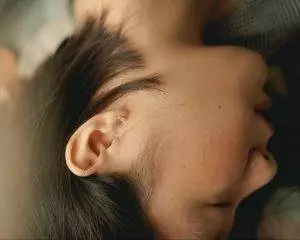
Meniere’s symptoms can be subtle at first, and a person may only have a few episodes of ringing in ear or vertigo once in a while. The common signs of Meniere’s include:
- Dizziness, vertigo, spinning sensation, light-headed
- Hearing loss, hearing problems, sudden drop in hearing, sounds are muffled
- Tinnitus, ringing in the ears, buzzing sound, roaring in ear
- Sensation of fullness in the ear, ear feels plugged up or congested
- Nausea, feeling like you’re going to be sick or vomit
In some cases, people with Meniere’s can have sudden falls, sometimes called “drop attacks,” or Tumarkin’s otolithic crisis. You may feel like you’re falling, or the room is tilting around you, and the next thing you know, you’re on the floor. These falls are unpredictable and can cause injuries.
Medical Treatment for Meniere’s Disease
One of the common treatments for Meniere’s vertigo, ringing in the ears, or a sensation of fullness in the ears is the use of diuretics like Lasix, Diamox, or Dyazide, following the logic that they will help reduce the amount of fluid in the inner ear. However, there is not much scientific evidence showing that this method works for everyone, and diuretics may have other negative consequences, such as lowering blood pressure.
Anti-nausea medications, known as antiemetics, may offer some relief from nausea during bouts of vertigo. Histamines and their receptors are understood to be involved with signalling in the brain that may impact balance, so antihistamines, such as Dramamine and Benadryl, are often offered as a way to reduce dizziness. Again, there is not much evidence of the efficacy of antihistamines for vertigo. Drowsiness is a common side effect of taking antihistamines. Antidepressants are also sometimes prescribed to help with vertigo.
In rare instances, doctors may perform surgery to physically alter the inner ear; this is called labyrinthectomy. This may help reduce debilitating vertigo for some patients or help to prevent drop attacks, but for some people, it can cause even more damage to their hearing capabilities, and can even cause deafness. All of these medical treatments only try to reduce symptoms, they don’t help to prevent hearing loss due to Meniere’s disease.
Can Acupuncture Help Meniere’s Disease?

According to TCM theory, the sensation that the ear is clogged is related to a buildup of Phlegm, causing both physical obstruction and blocking the flow of Qi (energy). Dampness and Wind are other pathogenic factors that can contribute to Meniere’s symptoms of dizziness, vertigo, and the ringing or whooshing sounds in the ear. Weak Kidney energy, combined with Wind rising from the Liver, can cause dizziness, tinnitus, and headaches. An acupuncturist will listen carefully to find out which symptoms are arising, and when, and will choose acupuncture points on the head to directly address the obstruction in the ear, as well as other points on the body to address issues with Kidney Qi.
It may be helpful to make certain dietary changes to help address the excess fluid involved in Meniere’s disease, including reducing salt and sodium, and limiting caffeine and alcohol. Your acupuncture provider will discuss nutritional choices that will help to relieve Meniere’s symptoms.
One study of Meniere’s patients treated with acupuncture showed not only that their vertigo had subsided after a few treatments, but that their hearing levels were maintained rather than worsening as treatment went on.
Another study compared patients with Meniere’s who were treated with antihistamines to a group of patients who received acupuncture treatment for 12 weeks in addition to the antihistamine medication. The patients who received acupuncture reported significantly less vertigo and dizziness, less tinnitus, and actual improvements in their hearing over the patients who received medicine only.
A review of studies using TCM methods, including acupuncture treatment, moxibustion, cupping, and herbal supplementation, to treat Meniere’s disease found that symptoms of vertigo and dizziness were, by and large, greatly reduced, to the point of patients reporting their vertigo as being fully resolved.
A study in which patients were given acupuncture and herbs for 10 days resulted in a 95% effective rate, with the majority of people treated reporting no symptoms at all after the treatment, even after a two-year follow-up.
Acupuncture Near Me for Meniere’s Disease in West Los Angeles
Vertigo is a deeply unpleasant sensation, and never knowing when an attack of dizziness and nausea may strike can really disrupt your daily life. TCM has a proven track record of effectively helping people get over symptoms like dizzy spells and ringing in the ears, and may even help to prevent further hearing loss. If you know you have Meniere’s disease, or if you have some combination of these symptoms but aren’t sure what’s going on, it may be a good time to visit a qualified acupuncturist to see if acupuncture can help relieve dizziness due to Meniere’s, migraines, or BPPV.
*This article is for education from the perspective of Traditional Chinese Medicine only. The education provided by this article is not approved by FDA to diagnose, prevent, treat and cure human diseases. It should not stop you from consulting with your physician for your medical conditions. Traditional Chinese Medicine is based on Qi, which is an invisible force that usually cannot be observed by modern science. Because science focuses on testing ideas about the natural world with evidence obtained through observation, these aspects of acupuncture can’t be studied by science. Therefore acupuncture and Chinese herbs are often not supported by double-blind, randomized trials, and they are considered alternative medicine therapies in the United States.
How to Treat PTSD With Acupuncture and TCM
By Qineng Tan, L.Ac, Ph.D. & Xiaomei Cai, L.Ac., Ph.D.

Post Traumatic Stress Disorder (PTSD) is a type of mental illness that develops after a person has gone through a traumatic life event. PTSD flashbacks, intrusive thoughts, nightmares, and sleep disorders are a few of the most common signs of PTSD. Acupuncture and TCM are widely accepted as a highly effective way to treat complex PTSD and other stress disorders, as well as anxiety, depression, panic attacks, and insomnia.
PTSD is mostly commonly associated with veterans of the military, as many soldiers who have served in combat experience trauma related to war violence. A significant amount of scientific research and psychiatric study has been devoted to finding out about PTSD and what treatments for PTSD are effective. Relative to other conditions, there have been quite a few studies showing that acupuncture can be helpful for PTSD. The U.S. Navy has even started an acupuncture training program in San Diego, after a Pentagon study showed that TCM is beneficial for veterans.
PTSD is not only a problem for military veterans, though. PTSD can result from all kinds of traumatic life events, including things like: accidents, natural disasters, surgeries, assaults, attacks, abandonment, or the death of a loved one. More than 8 million Americans are currently living with post traumatic stress. People of all ages can experience PTSD. PTSD can result from experiencing something traumatic directly, or being a witness to such an event. People whose jobs involve exposure to violence or disturbing situations, such as first responders, social workers, or police officers, can also have PTSD because of things they have seen. A person can be deeply traumatised by something they didn’t see happen firsthand, but that they heard happened to someone close to them.
The body’s response to extreme stress is one of its ways of protecting us. Stressful situations cause the “fight-or-flight” response and chemicals like adrenaline to be released. When this happens repeatedly, or to an extreme degree, because a person is literally in fear for their life, there can be long-lasting physical and emotional effects. Normal, everyday stress we hope to release from the body through exercise, meditation, laughter, and other stress-reducing activities. But when a person has endured abuse or life-threatening danger, they may not be able to release the stress from their bodies so easily.
TCM theory offers a way to help people deal with mental health issues like PTSD because it creates a context in which emotional and mental symptoms interact with physical symptoms. TCM addresses the way that trauma and negative emotions are stored in the body, sometimes causing overwhelming emotional and physical symptoms. Acupuncture and herbs are holistic treatments for PTSD that can be used as an adjunct to therapy and medications to help relieve stress, sleep problems, mood disorders, negative emotions, and problems with cognitive function.
Top 10 Signs of PTSD

Many people don’t realize that they are experiencing post traumatic stress. PTSD can overlap with several other types of mental health problems, and the symptoms of PTSD can often seem similar to those of other anxiety disorders or symptoms of depression. What PTSD feels like can be highly individual to each person and what caused their initial trauma.
The most commonly recognized symptoms of PTSD include:
- Flashbacks, intrusive thoughts, reliving traumatic events, can’t stop thinking about what happened
- Nightmares, recurrent, vivid, disturbing dreams
- Avoidance of triggering places, activities, or people
- Memory loss, amnesia, unable to remember periods of time related to the traumatic event
- Negative perception of self, negative perception of the world, blaming self or others
- Isolation, unable to connect with other people, relationship problems
- Feelings of anger, irritability
- Hypervigilance, always aware of perceived threat, can’t relax, exaggerated startle response, always on guard, panic attacks
- Difficulty concentrating, inability to focus on the present
- Insomnia, can’t sleep
PTSD often coexists with other mental health issues like anxiety, panic attacks, and depression. Chronic fatigue syndrome (also knowns as ME/CFS)has been associated with PTSD. Fibromyalgia, a syndrome that can cause generalized muscle pain, sleep problems, fatigue, and other problems can be related to PTSD. Sometimes fibro manifests after a traumatic event.
Types of PTSD

The term “stress disorder” refers to a combination of physical and emotional symptoms that are the body’s and mind’s stress responses to some type of trauma.
Different types of stress disorders include:
- Normal stress response – even common everyday work stress and relationship stress can cause widespread health problems. Serious issues like a relationship breakup, or job loss can lead to negative emotions and physical problems due to stress. People of all ages can experience debilitating symptoms of stress like: stomachaches, headaches, trouble concentrating, rapid heartbeat or trouble sleeping. If stress is allowed to build up over time, it can seriously damage health. Past illnesses or viral infections, like Epstein Barr and mononucleosis can also be a factor.
- Acute stress disorders – acute post traumatic stress is the immediate aftereffect of some sort of traumatic event or life-or-death situation. If the short-term (30 days or less) acute signs of trauma are left unaddressed, they can turn into PTSD.
- Uncomplicated PTSD – this refers to PTSD symptoms related to a specific traumatic event, such as a car accident, being the victim of a crime or assault, or surviving a natural disaster and its aftermath. This type of PTSD causes symptoms like: flashbacks, nightmares, avoiding a particular area, thing, or person, and strong feelings of anger, blame, and fear that impact your relationships and sleep patterns.
- Complex PTSD – complex trauma is the result of multiple, repeated traumatic episodes, like suffering abuse as a child, being in an abusive relationship, domestic violence, or repeated sexual abuse. Complex PTSD could also happen to people living in wartime conditions or who are part of a targeted community under brutal conditions. PTSD attacks can be brought on by complex PTSD triggers that remind you of the traumatic events, such as: a particular place or smell, a time of year or date, a physical pain or sensation in a particular part of the body, or reading a story or seeing a movie or TV show that brings up the memory.
- Comorbid PTSD – this refers to PTSD that coexists with other serious issues such as substance abuse, addiction, and/or depression. Comorbid PTSD is very common, because many people suffer from more than one of these mental health conditions at the same time.
In general, complex PTSD and comorbid PTSD are considered more difficult to treat and more likely to affect people throughout their lives than uncomplicated PTSD.
PTSD Treatment
Treatment for PTSD typically involves a combination of psychotherapy/cognitive behavioral therapy (CBT) and psychiatric medications for PTSD such as antidepressants (SSRIs like Zoloft, Prozac, or Paxil) and anti-anxiety medications (like Xanax, Ativan, Valium, or Klonopin). Long-term use of anti-anxiety medications is generally not recommended, as patients can become dependent on them, leading to abuse of the drugs. SSRIs can be helpful for symptoms of depression, but they can also have negative side effects, like sexual dysfunction (ED), weight gain, nausea, dizziness, and making sleep problems worse.

Exposure therapy is a specific type of therapy that helps people learn coping skills by working with the distressing memories or exploring possibly frightening situations in a safe environment with a therapist. Eye movement desensitization and reprocessing (EMDR) helps patients learn to adapt to the stress tied to the past trauma by thinking about it while looking at a movement pattern or listening to a repetitive sound. This treatment has been shown to help PTSD patients heal emotional trauma more quickly than talk therapy or CBT alone.
The conventional treatments for PTSD can help some patients, to different degrees, but many people with complex trauma do not want to go through this type of treatment. Talk therapy, trauma-based CBT, and exposure therapy may be terribly intimidating to people who are suffering with PTSD, and patients may be more afraid of entering into these kinds of therapy than continuing on with their current symptoms.
The TCM modality of acupuncture can have a positive effect on neurotransmitters, the brain chemicals that influence cognitive thought patterns and moods, without the potential negative side effects or dependency that can result from medications. Acupuncture can be a helpful alternative or complementary treatment to other types of therapy for PTSD.
Can Acupuncture Help PTSD?
In historical records of TCM, we do not see a word or description of a condition that is directly synonymous with PTSD. However, in TCM, we view emotional states as being related to the function, or dysfunction, of specific organ systems. The symptoms of PTSD can correlate with these relationships between the organs, the mental state, and physical manifestation of symptoms:
- Lung – Grief – Wheezing, trouble breathing, sweating, fatigue
- Spleen – Worry – Nausea, gastric problems, loss of appetite
- Liver – Anger – Headaches, muscle pain, dizziness
- Heart – Anxiety – Palpitations, insomnia
- Kidney – Fear – Urinary frequency, night sweats, memory problems
A TCM provider will look carefully at how each individual describes their physical symptoms and emotional state, and will choose acupuncture points for PTSD and herbs to help strengthen the organ systems that need nourishment.
In regards specifically to military veterans with PTSD, many survivors are wary of seeking medical or psychological treatment for complex trauma. The majority of soldiers who have served in the Middle East in recent years have been diagnosed with PTSD, but less than half of those veterans are receiving medical treatment for PTSD. Many people, in general, are reluctant to seek care, either because they don’t trust that it will work, or their complicated feelings of shame, guilt, grief, and anger are too overwhelming to share with others.
Acupuncture can be particularly helpful for some people suffering from PTSD because it does not necessarily have to involve talking about the original trauma or abuse. Some patients may avoid psychotherapy for this very reason, as they are not ready, and may never be ready, to go over these details with another person. An acupuncturist can help relieve symptoms of anxiety and depression by focusing on the person’s emotional and physical needs and tailoring the treatment to fit their symptoms and lifestyles.
A clinical study done by the Long Beach V.A. randomly divided patients into “real acupuncture” and “sham acupuncture” groups, and the patients received treatments twice per week over the course of 12 weeks. The veterans who received real acupuncture showed significant physiological improvement, with less startle reactions, as measured by skin sensors, than the sham group.
A Rand review found that acupuncture helped improve symptoms of depression, anxiety, and sleep problems in PTSD patients.
Acupuncture Near Me for PTSD in Los Angeles
It can be a long and challenging process to overcome complex PTSD, but with the right combination of PTSD treatment, it is possible to reduce or even eliminate symptoms. With a TCM approach and acupuncture treatment, we can help reduce anxiety and depression, address feelings of anger and grief in a clinically meaningful way, and help to promote better sleep. If you or a loved one is dealing with unresolved trauma and needs help, you may find that acupuncture is a low-risk and supportive way to treat PTSD.
*This article is for education from the perspective of Traditional Chinese Medicine only. The education provided by this article is not approved by FDA to diagnose, prevent, treat and cure human diseases. It should not stop you from consulting with your physician for your medical conditions. Traditional Chinese Medicine is based on Qi, which is an invisible force that usually cannot be observed by modern science. Because science focuses on testing ideas about the natural world with evidence obtained through observation, these aspects of acupuncture can’t be studied by science. Therefore acupuncture and Chinese herbs are often not supported by double-blind, randomized trials, and they are considered alternative medicine therapies in the United States.